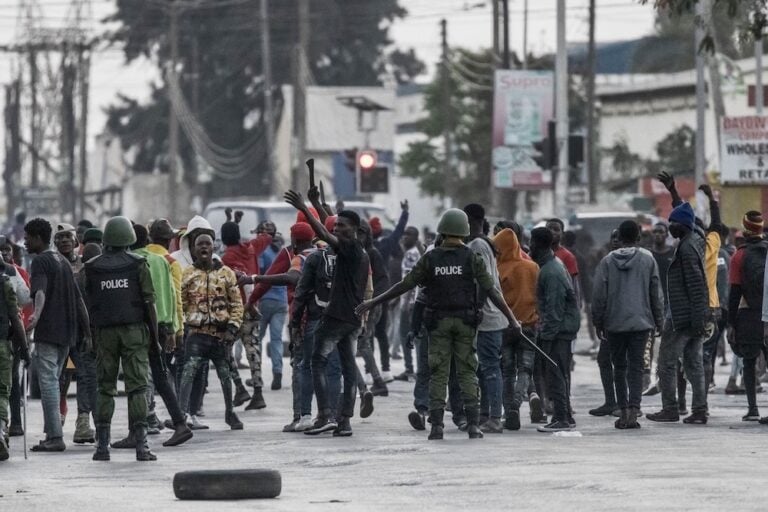(MISA/IFEX) – On 25 July 2001, Bivan Saluseki, a reporter working for the privately-owned “Post” newspaper, was arrested and charged jointly with Edith Nawakwi, a senior opposition Forum for Democracy and Development (FDD) official, for “defamation of the president.” Both denied the charge. According to the 26 July edition of the “Post”, the charge stemmed […]
(MISA/IFEX) – On 25 July 2001, Bivan Saluseki, a reporter working for the privately-owned “Post” newspaper, was arrested and charged jointly with Edith Nawakwi, a senior opposition Forum for Democracy and Development (FDD) official, for “defamation of the president.” Both denied the charge.
According to the 26 July edition of the “Post”, the charge stemmed from a story written by Saluseki in its 16 July edition under the headline “Chiluba is a thief”. Saluseki reported on Nawakwi’s allegation that President Chiluba had allowed his ministers to steal public funds which they later shared with him.
The two were summoned to Woodlands police station in Lusaka on 25 July and charged with the offence under Section 69 of the Penal Code. It is an offence, under this provision, for anyone to intentionally incite hatred, ridicule, or contempt against the president or publish any defamatory information which is insulting to the president. The insulting information may be in writing, print, through word of mouth or in any other form. Upon conviction a person may be sentenced to prison for a term not exceeding three years. There is no provision for a fine.
Saluseki and Nawakwi were due to appear in court on 27 July but the hearing did not take place. There was no explanation from the state for the case’s failure to begin, nor were the defendants informed about their next court appearance.
Alfred Chanda, a law lecturer at the University of Zambia, describes Section 69 of the Penal Code as having “the effect of stifling freedom of speech and the press, as it does not lay down any guidelines for determining what constitutes an insulting matter. The police have the discretion to decide what publication is defamatory or insulting and what is not.”
In January 2000, a government appointed Task Force on Media Law Reform, headed by lawyer John Sangwa, recommended the repeal of Section 69 because it was contrary to democratic norms. “If the gains that have been made in the past few years in democratising Zambia are to be consolidated, and an open and free society created, Section 69 must be repealed,” said the report.


